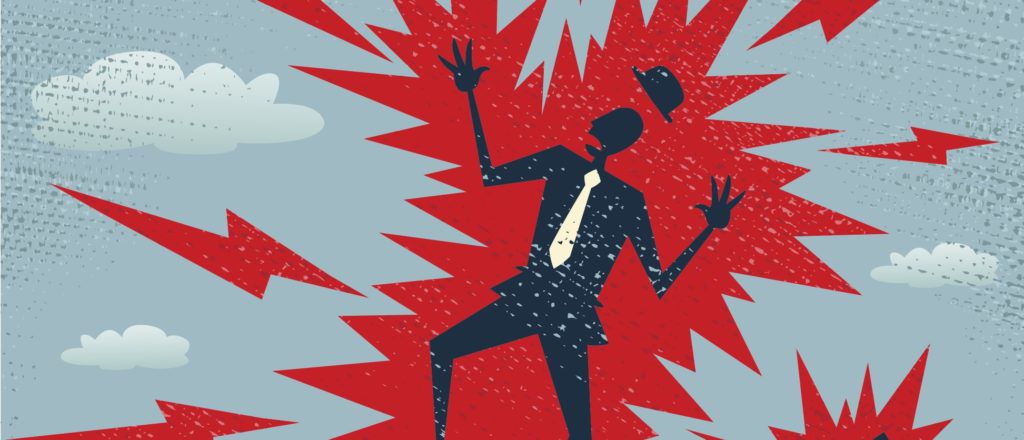
The Stirrer
This is not intended to be an exhaustive piece. It’s merely some notes indicating areas I’d like to return to in greater depth at some point in the future. All I want to do with this brief piece is get people thinking about the impact and adverse consequences of unwanted, top down and essentially forced changes on people’s lives. Impacts that will have social and political consequences that may not always be to the liking of those defining themselves as ‘progressives’.
In the main, people are generally in favour of change if they’re in charge of how it happens and the direction it’s going in. That’s the case with numerous scenarios ranging from community projects aimed at improving a neighbourhood through to someone starting their own small business. In varying ways, we all want to improve our lives, not just materially but spiritually as well. To do that, we have to bring about change. This applies at the individual and communal level. To want to make things better, not just for ourselves but also for future generations is an intrinsic part of what we are as human beings.
For sure, there’s a lot of discussion about what kind of change can be sustained into a very uncertain future on what is ultimately a planet with finite resources. We recognise that… It has to be said that change that takes into account the need for a sustainable future has to be directed by us, the people. It can’t be something that’s imposed upon us and forced because without legitimacy, it will inevitably fail.
What people don’t like and often fear is change that’s imposed upon them where they have little or no control over the direction they’re being forced in. This starts with economic and social changes imposed on a reluctant population. One example of such change is allowing food prices to rocket so high, people are effectively experiencing a de facto form of rationing as they’re left with no option but to cut down their spending to the bare essentials. Another form of unwanted change comes from institutions such as education when they start to adopt agendas that seem counter-intuitive to the values many people hold. These are changes that impact on people’s values and customs in a way that understandably, makes a fair few of them feel there’s a more sinister agenda at work to bring about wholesale social change.

While people want change they can consciously direct, they also want some degree of continuity and stability in their lives as well. So when their perceptions of family values are challenged and the beliefs they’ve held dear for much of their lives are denigrated, please don’t expect it to end well because it won’t! Shaming people for their values and cajoling or forcing them to change to embrace a worldview they find unacceptable will inevitably generate a reaction – one that many people who see themselves as ‘progressives’ will not like!
People in the main want to live in stable and safe communities. Okay, it’s different strokes for different folks. Some will like the rural or small town life. Some will be quite happy in suburbia. Others will be happier with a faster paced city life. Regardless of where people live, they want a degree of continuity and stability that makes where they live feel safe. Obviously, those opting for the city will expect and be quite happy with a faster rate of change that those opting for suburbia. What people generally don’t want is to be living in an area where there’s rapid demographic change that they feel has been imposed, either by market forces (gentrification and ‘regeneration’) or by top down government/local authority policies for various reasons, including unwanted greenfield development.
When change comes rapidly and it feels like we’re being hit by one thing after another, it’s inevitable that we’re all going to suffer from some form of what can best be described as future shock. After the last few years, it really does feel like a lot of us are suffering from some degree of future shock. There’s been the many faceted culture wars where a growing number of people feel that their values and worldview are under assault. There was the over the top response to Covid where it’s only now starting to become clear that many of the measures that were imposed are going to cause long term harm.
There comes a certain point where people not only start to question what’s been and continues to be done to them but also, they want some answers as to why it’s being done and solutions to halt and reverse the damage. How that is happening and will continue to happen is and will be a contradictory and messy process. It has ranged from new forms of protest such as the manifestations of various anti-lockdown currents on the streets through to results at the ballot box that are alarming, and will continue to alarm those who see themselves as ‘progressives’. The conclusions of what can best be termed an awakening certainly have a radical potential but equally, they could lead to a reactionary outcome.

What are the lessons to be learned from this? For those activists in their self referential bubbles, the lesson is that they need to leave their comfort zones and connect with ordinary people. For the rest of us, it’s being open to new ways of thinking and being prepared to adjust our worldview, strategy and tactics in light of our experience. Over the last couple of years, we have really started accelerate that. Although to be honest, being able to relate to ordinary people without going into finger wagging mode is something I’ve been doing since my days in the Independent Working Class Association back in the 2000s. That in essence is relating to people who don’t give a shit about what pronouns are used to address them but who want a decent, fulfilling life in a community where they feel safe. If the self referential activists in their bubble can’t hack this, then let those of us with the experience of this address the situation we see before us.
Right, as stated at the start of this brief piece, all I’ve done is flag up a number of issues that merit more thorough examination at some point in the not too distant future. This piece has been posted up simply to prompt what will hopefully be a constructive discussion about how we can move forward in what are increasingly turbulent times. I look forward to hearing your thoughts on how we deal with the impact of rapid, unwanted change on people’s lives.